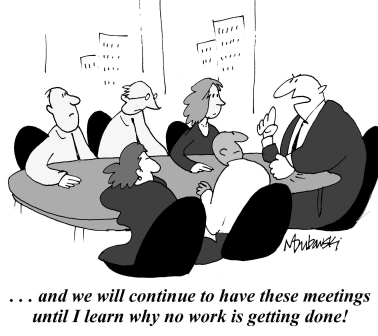Picture this. You are hard at work on a deliverable and a meeting reminder pops up on your computer screen. You dread looking at it but you already anticipate what it will say.
“Reminder Weekly Project Status Update in 2 hours” (or more likely in 15 minutes)!
So what should an “exceptional employee” do now? Most employees are forced to stop working and create presentations that describe problems or obstacles that they have already solved or overcome. On top of that, employees typically must share those achievements to an audience that has no connection or stake in the work that they have done. Why has it become status-quo from startups to Fortune 500 companies to utilize meetings, in the most haphazard and inefficient way?
Throughout my career I have seen first hand the importance of pulling up and determining what progress remains for my team or client. Unfortunately, that has not been the norm. A couple of months into my Project Manager role, after a particularly unproductive project status meeting (which inspired one of the top ten historic rants of my life), I was sent an article — thanks to divine intervention — entitled “Have Status Meetings at Work? No, No, No, and No.” The article was a great read and it shared research that proved my intuitions. The Harris Poll, which was cited in the article, showed that progress status meetings are viewed by most as unproductive and very unpleasant:
60 percent of status meeting attendees reported that preparing for a status meeting takes longer than the meeting itself
46 percent of employed Americans would rather do any unpleasant activity than sit in a status meeting, with 18 percent opting for a trip to the DMV and 17 percent choosing to watch paint dry
“Status meetings — via email, a meeting, a PowerPoint deck — kill productivity,” Lori Bush Shepard, vice president of corporate marketing for Clarizen, told CMSWire. “Information workers spend countless hours gathering information, preparing and presenting about their work rather than doing their work.”
This research confirms what I have felt many times as a founder, management consultant and PM — regularly scheduled progress status meetings can deter a team from reaching its short-term and long-term goals. So now as a startup mentor, I advise my CEOs within my portfolio company to maximize each progress status meeting with the following key guidelines:
Objective 1: Each team member should know what next steps they should complete and how their work will help others on them
Objective 2: The entire team should know what the key priorities are to meet the next milestone
Rule 1: Only relevant stakeholders should attend the meeting
Rule 2: Each presenter should only share delays/risks to reaching milestones and insights that could assist in the progress of other teams
If you apply these objectives then you will have efficient meetings that get to the point like this.
#IWBITK (I would be Interested to Know) what all the entrepreneurs, product managers, and business leaders have done to make their project status meetings more productive? What tools have you used?




